As one of the major events to celebrate its 110th anniversary, Tsinghua University organised the Global Forum of University Presidents 2021 (GFUP 2021) with the title: Innovate for the Future: Vision and New Mission of Universities from April 19 to 24, 2021.
Tsinghua University President Qiu Yong opened the first GFUP session “University as a Cultural Space: Looking Back into the Future”, with an inspiring speech.
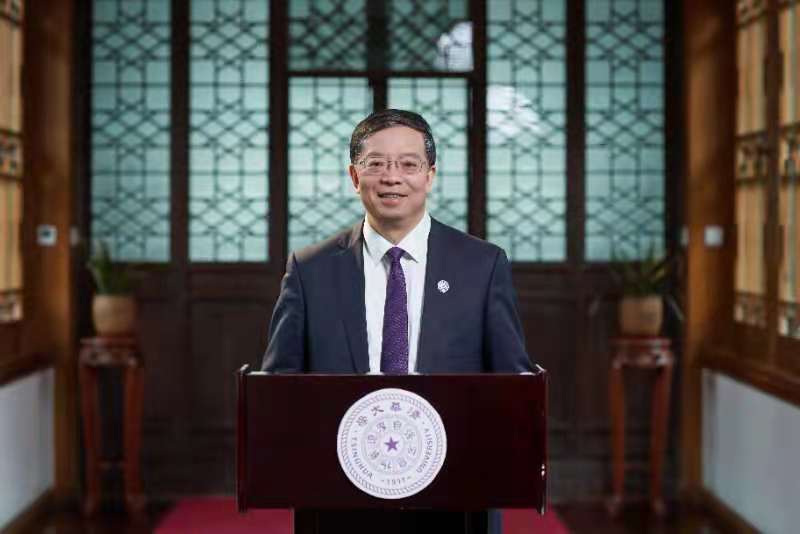
“As we reflect on the evolving role of the university in society, we recognize the profound and urgent nature of global challenges that we face in the 21st century. Challenges such as health emergencies, global warming, social inequality, and the threat to international collaboration and exchange require our thoughtful discourse and united response,” President Qiu said. “This Forum convenes university presidents to share their experiences, ideas, and solutions to explore emerging responsibilities for global higher education. We will support greater levels of collaboration that cross national, disciplinary, and technological boundaries. And we will explore pathways for universities to rise to their highest potential.”
President Qiu said that the first session would reflect our appreciation and anticipation of our unique cultures, and the aspirations we hold for the future. “We appreciate the growing diversity of the values and roles of the university, and also address some growing conflicts among them. Moreover, we anticipate the changes we need to adopt in accordance with our time, in order to both safeguard the traditional culture of the university, while also encouraging our university culture to evolve. We aspire for a greater contribution to the earth and humankind.”
President Qiu believed that while we celebrate Tsinghua’s 110th anniversary, we are also celebrating all universities as pillars of culture. “Tsinghua is delighted to share our commemorations with the world and facilitate this gathering of University Presidents,” he said.
Professor Shi Jinghuan of the Tsinghua Institute of Education chaired the first forum session participated in by thirteen higher education leaders from eight countries. This session promoted the idea that celebrating one university’s anniversary also means celebrating the founding of all universities, and anticipating their future success by connecting and commemorating our unique as well as shared cultures.
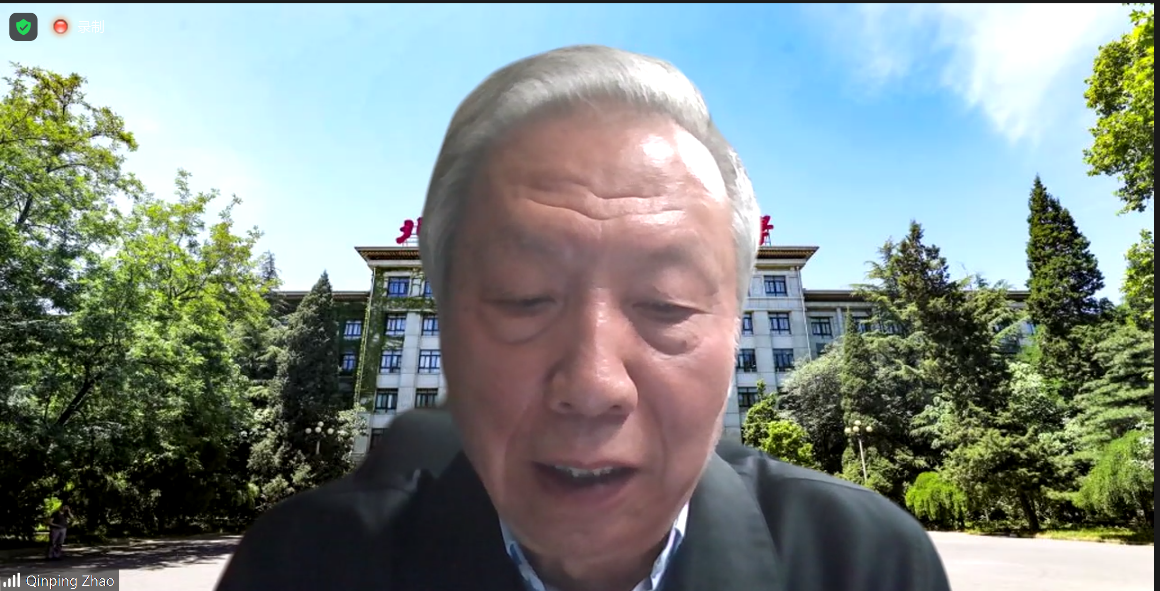
Professor Zhao Qinping, the former Vice Minister of Education, delivered the keynote speech. He congratulated Tsinghua on its outstanding contribution to educational and academic development and to international collaboration and exchange. He also recognised Tsinghua’s sustained efforts to promote and undertake research into the culture of the university. He recognised the culture of the university as an engine of culture in wider society. He stressed the importance for the university to inherit Chinese and world cultures from the past in order to innovate for a shared future.
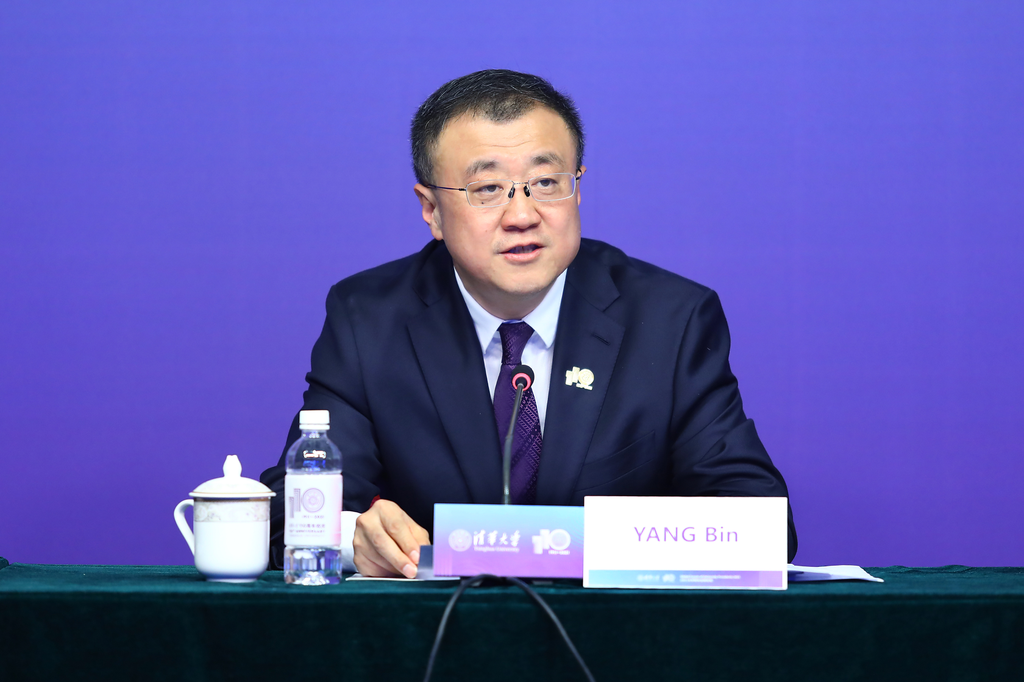
Vice President and Provost Yang Bin of Tsinghua University elucidated the shared idea of a university in Chinese and Western culture with an etymological analysis. He identified three shared meanings by comparing the word for the university in Chinese 大学(Da Xue)and in Latin universitas: both refer to the whole and are related to the universe, both are about the community of students and scholars, and both refers the action of turning or transforming through learning. He proposed the idea of “与共”(Yu Gong), or togetherness and sharing in English, drawn from the Tsinghua culture of self-strengthening and social commitment, as a way to promote mutual understanding and reciprocal development among universities and people across cultures. He also shared the current Tsinghua practice to promote global competence by fostering cultural connoisseurship.
Vice-Rector Michele Bonino of the Politecnico di Torino (PoliTo) shared the holistic university-city engagement as a cultural trait of his institution, such as strong urban roots, an emphasis on the arts in the engineering curriculum, and connecting the city to the world by hosting the Biennale on Science and Technology. He cited the exhibition “China Goes Urban” as an example of joint cultural effort based on long-standing PoliTo-Tsinghua research. He also discussed the ongoing PoliTo-Tsinghua preparation for the Year of Culture and Tourism in 2022.
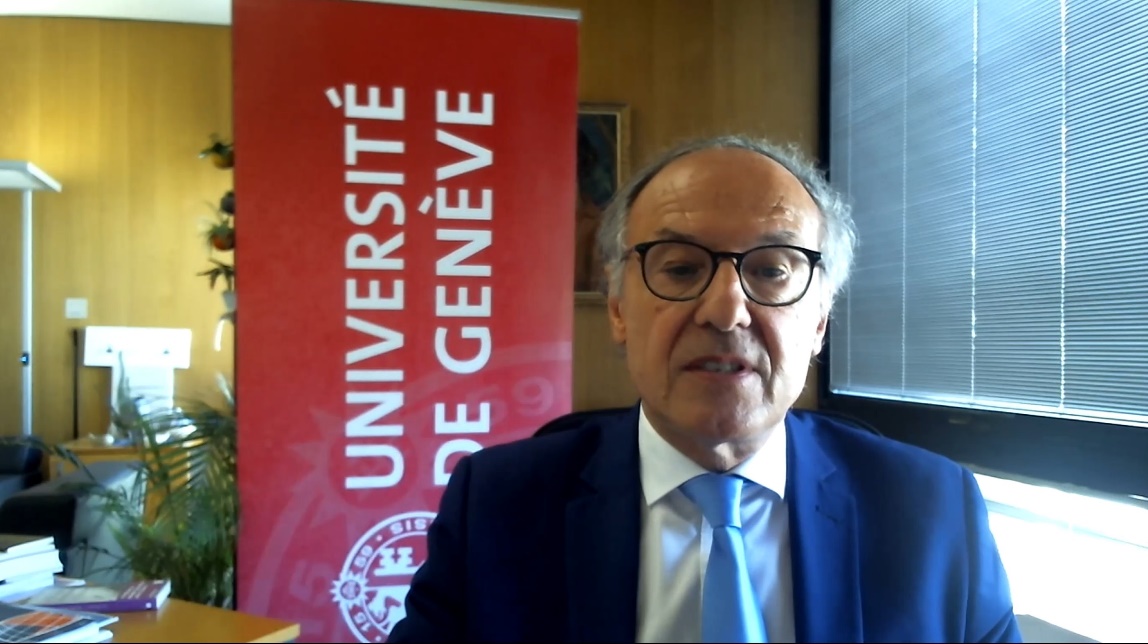
Rector Yves Flückiger of the University of Geneva traced his institution’s commitment to the Sustainable Development Goals (SDGs) to the culture of multilateralism as the ‘Spirit of Geneva’ that underpinned the development of the League of Nations then of the United Nations over the past century. He cited the Geneva-Tsinghua Initiative since 2016, a comprehensive education program for the SDGs, as a joint effort to continue an open dialogue in search of peace.
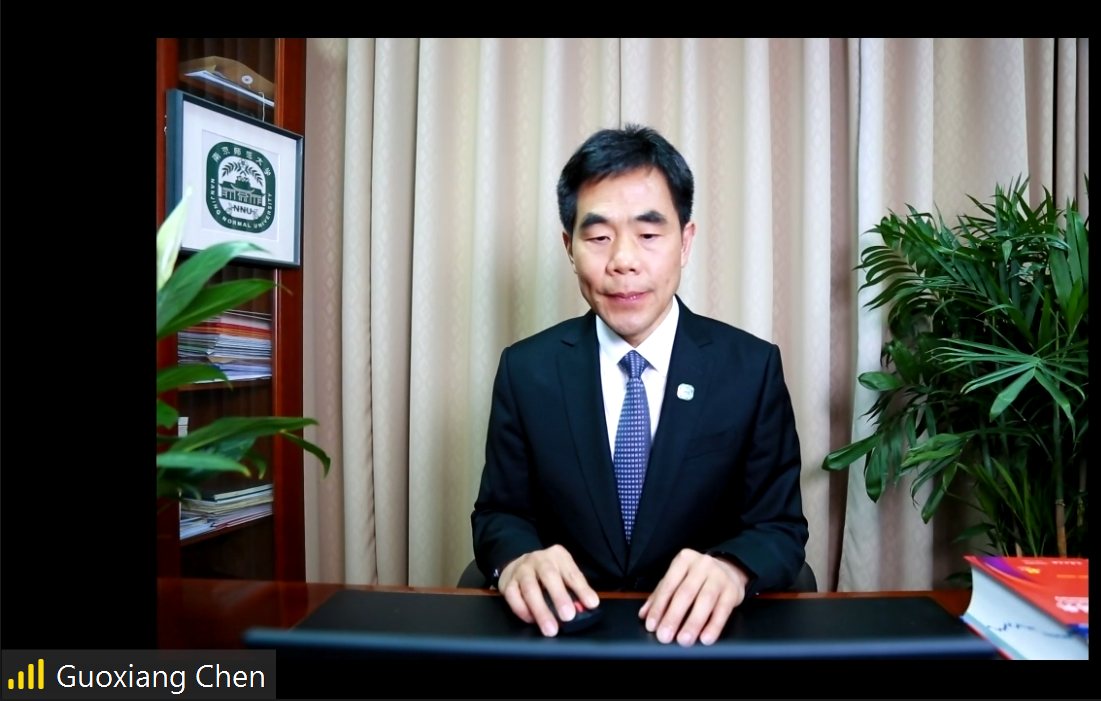
President Chen Guixiang of Nanjing Normal University traced his Institution’s founding to an effort to modernise Chinese education through integrating Chinese and western learning. He observed that the Chinese universities have become more conscious in inheriting traditional Chinese culture. He advocated that the university should shoulder growing responsibility in innovating the culture of its own institution and that of the wider society. He proudly cited the example of his university as the first university to enrol women as early as 1920.
Vice President Damien Fabregue of the Institut National des Sciences Appliques de Lyon (INSA Lyon) shared the founding story of his university by a rector and a philosopher with the principle of educating engineers with a humanistic orientation and educating people from all walks of society. INSA Lyon serves as a living lab and a mirror to the complex world, fostering multi-skilled talent capable of tackling critical societal challenges. He also shared two unique features of INSA Lyon: double-track education in engineering and arts, and special-track education in sports and the arts as ‘a second life’ for high-level athletes and artists.
Vice President and Pro-Vice-Chancellor Gong Peng of the University of Hong Kong explored the impact of the physical campus on the culture of the university. Mapping the evenly distributed public facilities on the campuses of the University of Chicago and Columbia University, he illustrated how an open, small, even, and accessible physical space generates a culture of equality, freedom, closeness, and collaboration. Such a culture facilitates the exchange of ideas and hence promotes individual creativity and cross-disciplinary collaboration in real-world problem-solving. He advocated stronger attention to physical campus planning in the age of ubiquitous e-learning.
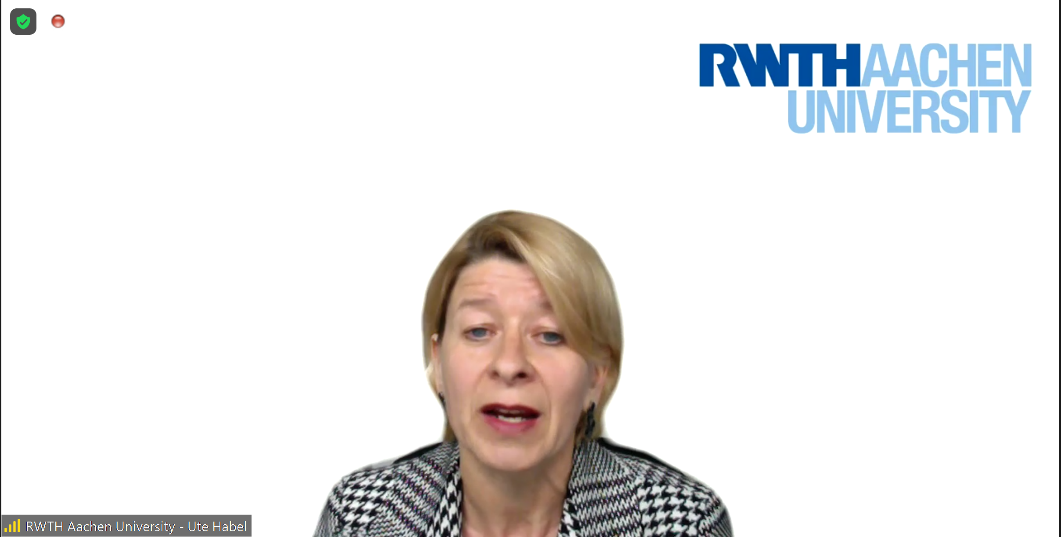
Vice Rector Ute Habel of RWTH Aachen University regarded the celebration of Tsinghua’s 110th anniversary also as a celebration of the 40-year Tsinghua-Aachen partnership for “joint interest, mutual respect, and trust”. Over 900 students have enrolled in the Tsinghua-Aachen Double Degree Program for Mechanical Engineering over the last 20 years. She regarded the universities as cross-cultural spaces to expose the students and scholars “to the presence of open minds” and welcomed “divergence and diversity as potential enhancement”.
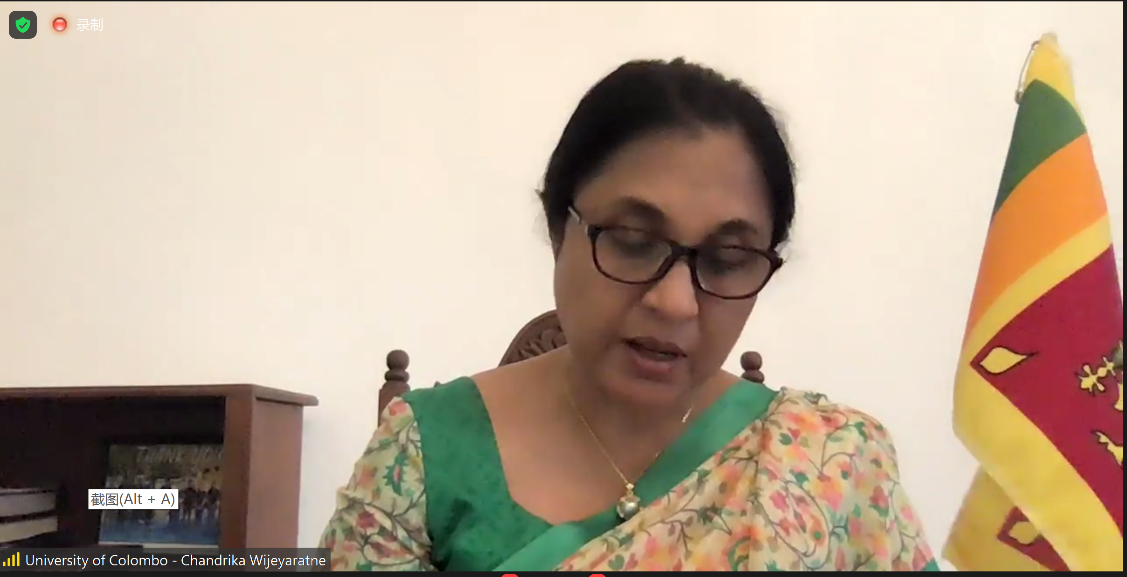
Vice-Chancellor Chandrika Wijeyarante of the University of Colombo advocated paying homage to the pioneers of university founders and early alumni “for their visionary leadership and holistic outlook that have contributed so much for what we are today”. She regarded the future of the university as lying in “the fullest exploration of research and development from an academic perspective”, if we, as a university community, are to truly bring about social benefit to every member of society. She also acknowledged that the Tsinghua-Colombo collaboration in agriculture and precision diagnosis of cancer since 2019 have obtained sustainable national support.
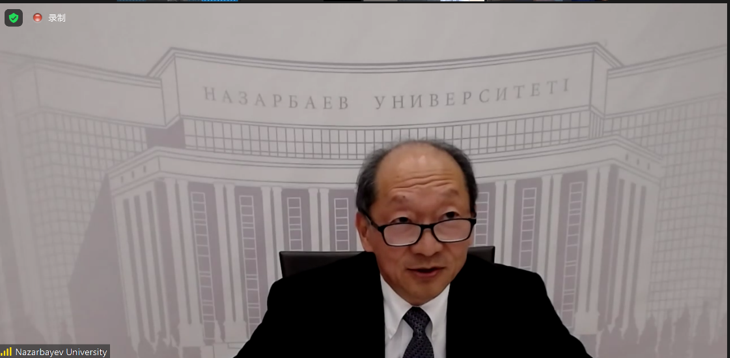
President Shigeo Katsu of Nazarbayev University shared the story of his university as a young but daring flagship institution of his country, aspiring to create “a new paradigm for education, institution, and a living model of how to push forward educational reform”. He enumerated many innovate efforts of his university, ranging from ensuring academic freedom and institutional autonomy, upholding meritocracy and transparency, and articulating graduate attributes, to developing strategic international partners. He regarded future universities as talent engines, a locus of discoveries, a place of fluent communication, lifetime partners, a trusted home-base for scholars, and a launchpad of new ideas.
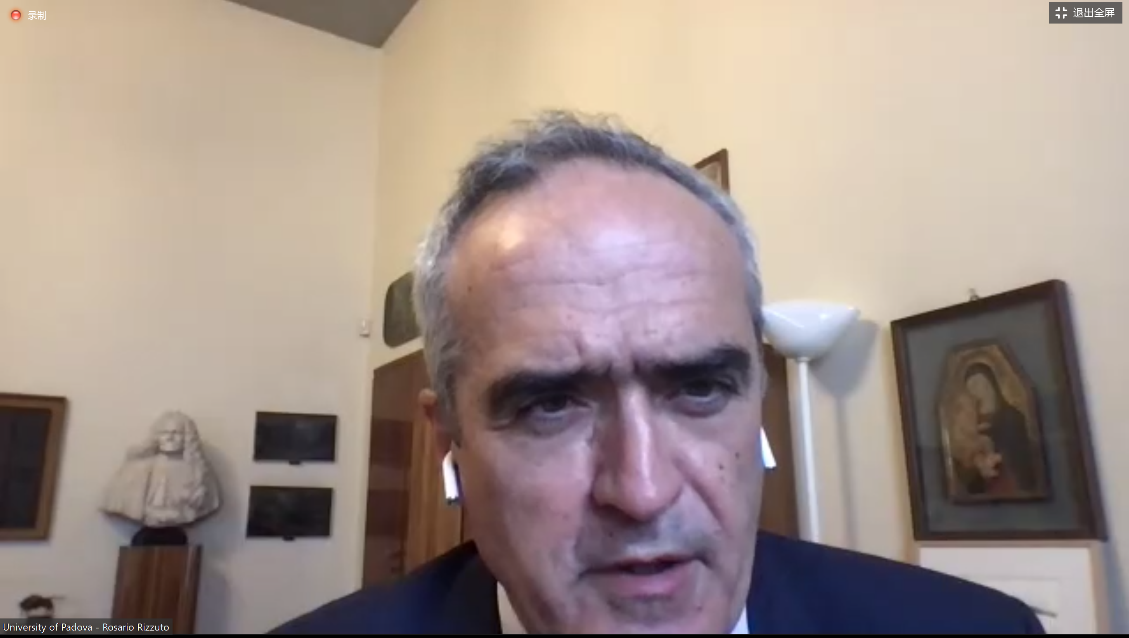
Rector Rasario Rizzuto of the University of Padova shared over eight centuries of development of his University as “you look to the past to design trajectories for the future”. He explained two Latin words “studium” and “universitas” which portrayed the culture of the university as a free and inclusive open space, embracing the diversity of knowledge, people, and nations. “Studium” denoted the university as a seat of research, culture and learning, while “universitas” a community of students and scholars. He valued the university’s role in building future society through educating the young with humanistic values and scientific method, and connecting the local to the international through ground-breaking research and innovation.
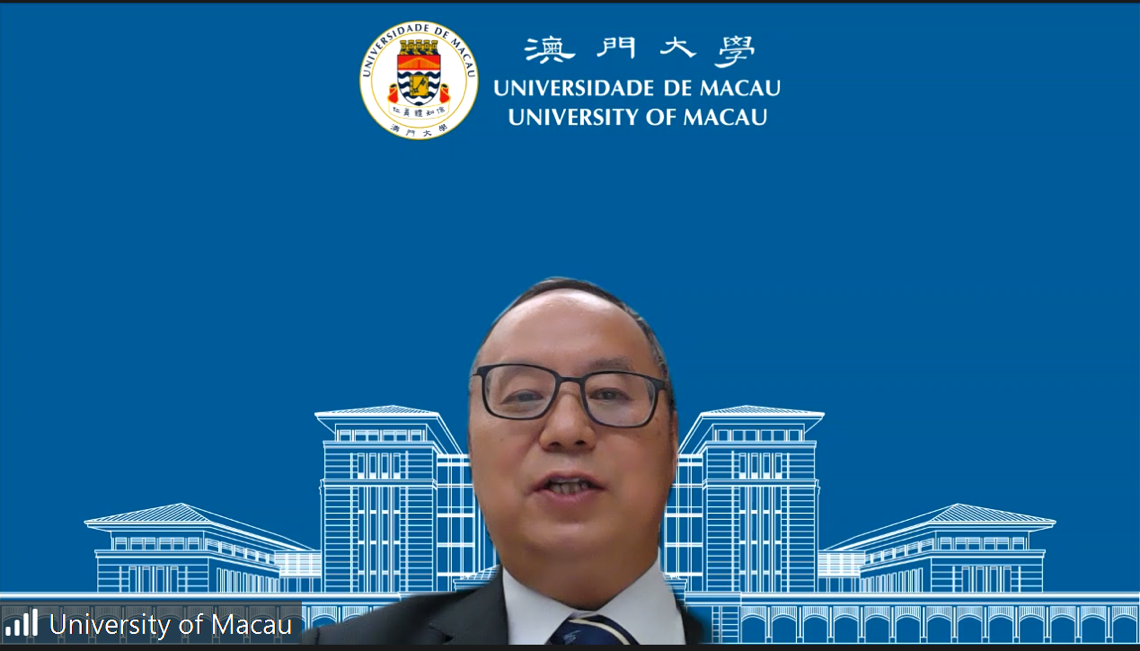
President Song Yonghua of the University of Macao discussed the role of the university in a global, historical, and multicultural city like Macao. The dual mission of his university was to strengthen the mainstream status of Chinese culture while preserving and enriching the culture of non-Chinese people in Macao. His university has built a special cultural building to host study centres for both Chinese culture and Portuguese culture. In this way, the university celebrates all cultures, and shoulders the responsibility to ensure the co-existence of multiple cultures in the university and in Macao society.
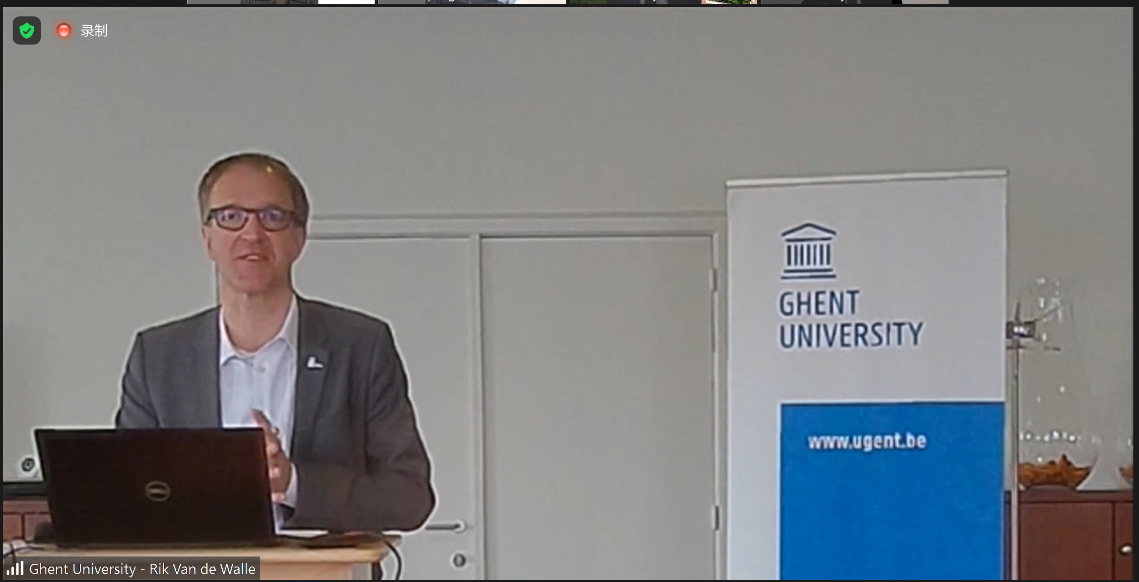
Ghent University’s Rector Rik Van de Walle raised a series of questions worthy of self-reflection and joint discussion: why does the university exist at all? what does it mean to be a university? what are the common missions of universities, and are they still relevant today? If not, what is to be changed? And if yes, are we still good at achieving them? What is the future university in 2050? He proposed that a key to many of those questions lay in the symbiosis between teaching and research, mental and physical space, and the preservation and generation of knowledge.
The forum speakers reached agreement that no matter how old their universities were, we were all facing the same challenges. For example: how to make the universities as an agent to preserve, create, and innovate culture in their own institution and also in their respective cities, regions and countries; how to communicate fundamental university values to wider society; how to promote cross-culture connoisseurship and collaboration; how to adapt rapidly in response to the COVID-19 pandemic; and how to promote creativity and critical thinking among the students.

In conclusion, the chair of the forum Professor Shi Jinghuan Shi suggested that we should appreciate the paths we have walked so far, and think deeply on how we can all work together to make universities a better place of educational and cultural discovery, development, and innovation.
GFUP 2021 will convene online and offline from 19th to 24th of April 2021. Sessions are designed to explore themes such as: University as a Cultural Space; Looking Back into the Future (19th April); Global Carbon Neutrality: Universities Responsibility and Action (21st April); Rethinking the Future and New Mission of Online Education (22nd April); and Global University Leadership (23rd April). The forum will culminate in the Plenary Session and the release of the Tsinghua Consensus 2021 on 24th April, which will encapsulate the outcomes from the forum and guide the vision and new mission of universities.
Writers: Zhong Zhou, Camilla Kong
Editors: Guo Lili, Li Han, John Olbrich

